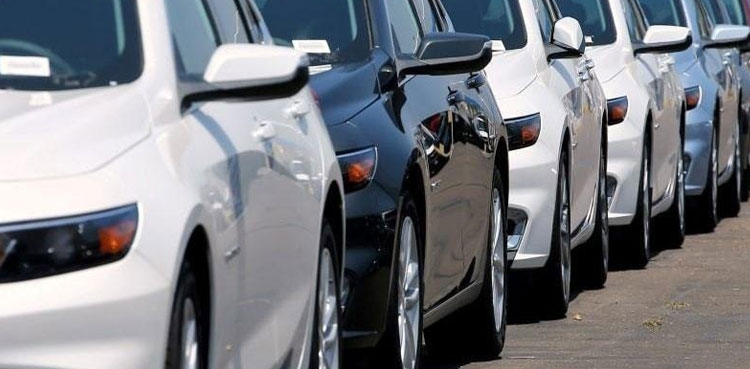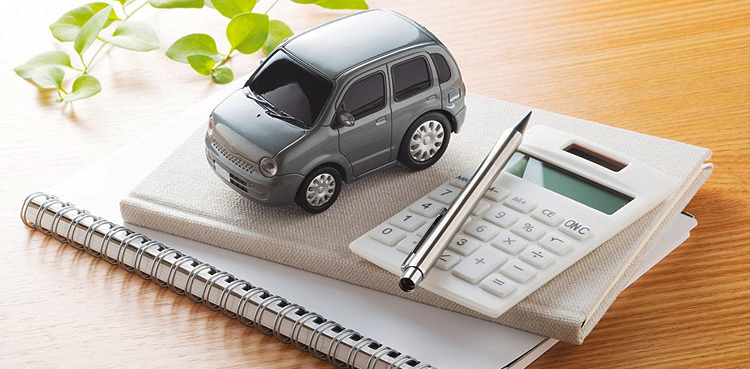Auto financing shrinks
- By Nabeel Zafar -
- Sep 04, 2023

The slackness of the national economy has started to hit almost all economic aspects of the country. The economic decline has accordingly depressed the auto market and has resulted in getting the auto finance shrink to worrying levels. The reduced demand for vehicles has cast a gloom over the auto sector and the rising interest rates have depressed the auto finance creating a crisis in this field of economic activity.
It is reported that the amount of auto loans shrank for the 13th consecutive month causing serious concerns amongst the outfits arranging auto loans. The loan amount has come down by Rs.8.5 billion to Rs.285.2 billion at the end of July from Rs.293.7 billion in June.

The figures reveal that the country recorded the highest financing of Rs.368 billion stood at the end of June 2022 and since then it has been sliding as a result of rising interest rates that now stand at 22 per cent and with charges added by lending outfits go up further. It is also mentioned that the curbing measures of the central bank further depressed auto finance.
An upper limit of Rs.3 million on auto loans and a reduction in repayment duration by the SBP further hit sales of local assemblers discouraging people to obtain vehicles on bank loans. It is also pointed out that fresh buying of vehicles through banks has considerably reduced though the net retirement of already issued loans is taking place regularly.
Buyers are also apprehensive of expected rise in the interest rates along with the galloping inflation making the prices rise further is also causing depression in the auto sector. The depreciation of rupee is a contributing factor in the instability of the sector as it compels automakers to increase prices of vehicles.
The sentiment is that the auto sector will remain in a bit of crisis till December and the sales situation may also remain alarming even during 2024 with no sign of a big drop in interest rate, prices and rupee-dollar stability. There is hardly any doubt that the country’s automobile industry is facing the worst-ever economic downturn. During the year, local and global disruptions along with import restrictions on completely knocked down (CKD) kits, resulted in plant closures, thereby causing massive joblessness in the industry.

The country’s pre-eminent mobile manufacturer Indus Motor Company is facing difficulties as its yearly profit declined by 39 per cent to Rs.9.66 billion from Rs.15.80 billion. Sales of locally assembled and imported units plunged by 58 per cent to 31,602 units from 75,611. The company assembled 32,696 units as compared to 72,438. Net sales turnover during 2023 fell by 36 per cent to Rs.177.71 billion from Rs.275 billion during 2022. Its board of directors announced a final cash dividend of Rs.29 per share making the total annual dividend for the year Rs.71.8.
The downward trend appears to be long-term decline as the auto sector has remained under pressure since July 2022 following the central bank’s decision to impose restrictions on the import of completely knocked-down kits which led to frequent plant shutdowns and delays in delivery of vehicles. Auto financing used to enjoy a 40-60 per cent share, which has now dwindled to 20-30 per cent, in the overall automobile sales. The obvious reason is the continuously rising interest rate that has climbed to 22 per cent from 7 per cent in 2020. The auto assemblers were constrained to increase prices amidst plant closures that further aggravated the performance of the sector.
It is reported that car leasing is almost negligible as monthly instalment has also risen after a continuous rise in the interest rate. Many new companies have suspended providing new vehicles to their high-salaried employees. The country’s sales of cars, jeeps, vans and pickups plunged by 80 per cent year-on-year to 4,463 units and 52 per cent month-on-month. At the same time, the import of completely and semi-knocked-down kits by the local assemblers plunged by 51 per cent to $682 million from $1.4 billion last year.
Abnormal price hikes by the assemblers have further slowed down the demand for vehicles, posting a drop of 55 per cent in sales of cars, SUVs, vans and pickups to 127,000 units during 2023.
Plummeting demand for vehicles coupled with parts shortage due to restrictions on imports owing to the foreign exchange crisis has led to plant shutdowns by the assemblers thus rendering thousands of people jobless in the vending units. Auto industry is considered one of the supporting pillars of the economy and its decline causes a negative impact on the overall performance of the national economy.
The problem is that there is no quick fix for the issue and it may take considerably long time for the auto industry to shake off its decline that is dependent upon many factors.
